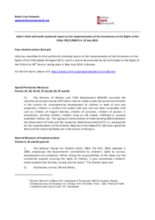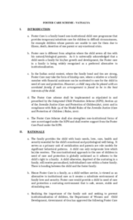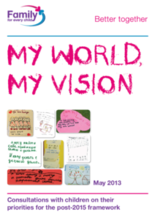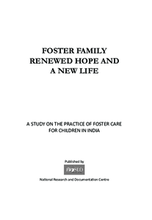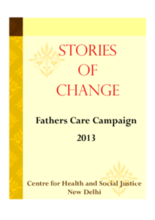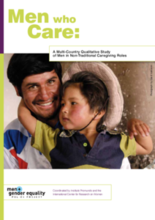childrens_living_arrangement
children_living_without_bio
Displaying 391 - 400 of 427
This important study on foster care practices in India provides important insight into the history, approaches, challenges and opportunities facing the development of foster care services in the country, presenting a picture of foster care practices across nine Indian states.
India submitted its third and fourth combined report on the implementation of the Convention on the Rights of the Child.
For children separated from their families, the 139 organizations of the South Asia Alliance of Grassroots NGOs (SAAGN) launched the campaign “My Caring Family is My First Right” in June 2013. As part of the campaign, Butterflies, a registered voluntary organization working with street and working children in Delhi, is supporting a new online petition that calls on governments in the region to respect a child’s right to a family.
The state cabinet of Goa in India has approved a foster care scheme to assist children deprived of parental care or of the care of guardians, and in need of protection. These government guidelines set out the purpose of the scheme, criteria for eligibility and procedures to be followed, including the relevant forms.
The state cabinet of Goa, India recently approved a foster care scheme to assist children deprived of parental care or the care of guardians and in need of protection.
The Millennium Development Goals will come to an end in 2015 and discussions are currently taking place on what framework will replace them. Children’s participation is crucial to these discussions. Between July 2012 and March 2013, members of Family for Every Child consulted with children living in seven different countries. This report summarizes the main findings that emerged from these consultations.
This study, a first of its kind in the country as far as we could ascertain, focuses on the foster care services provided by various organisations and institutions in India.
MenCare India shares personal anecdotes from its 2013 Fathers Care Campaign.
A report examining the experiences and attitudes of men involved in non-traditional care activities and roles in Brazil, Chile, India, Mexico, and South Africa.
In its Annual report (2011-2012), the Indian Ministry of Women and Child Development reports on progress in the implementation of the Integrated Child Protection Scheme (ICPS), a new policy and programmatic strategy that specifically articulates the need to move away in approach and services from over-reliance on institutional care and towards responses that support family based care.


